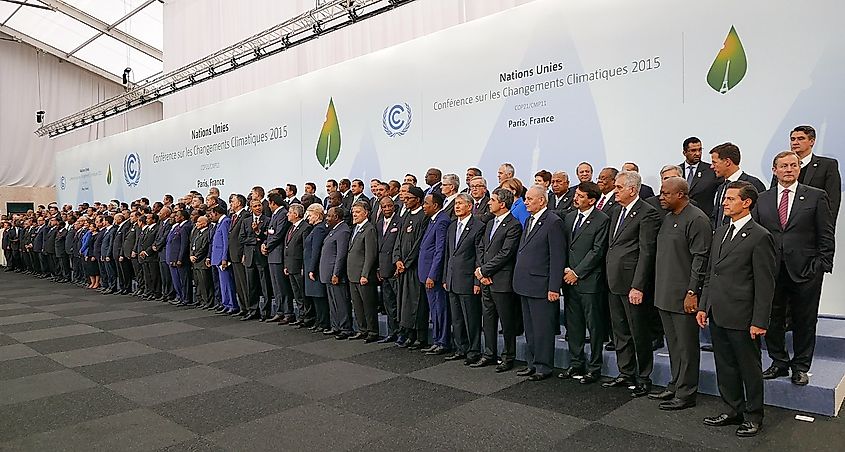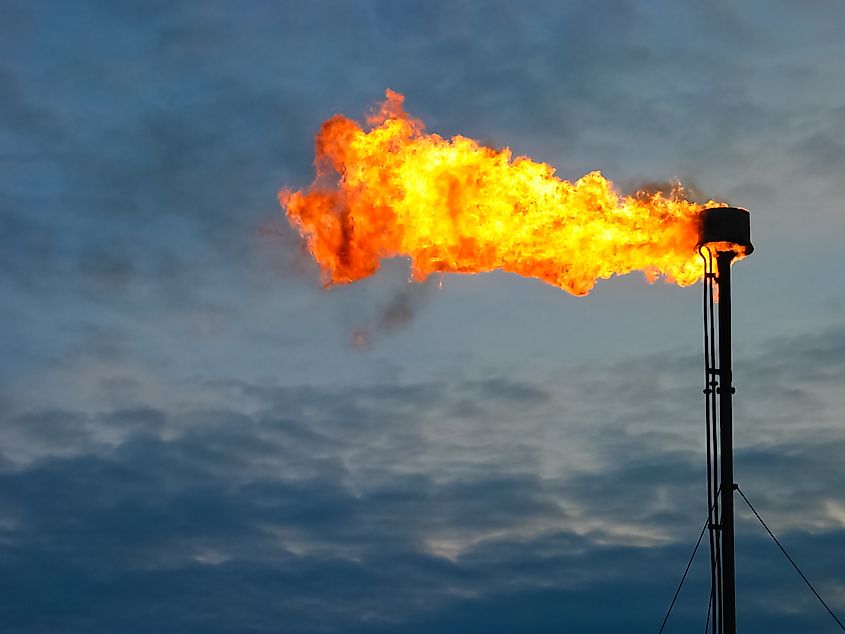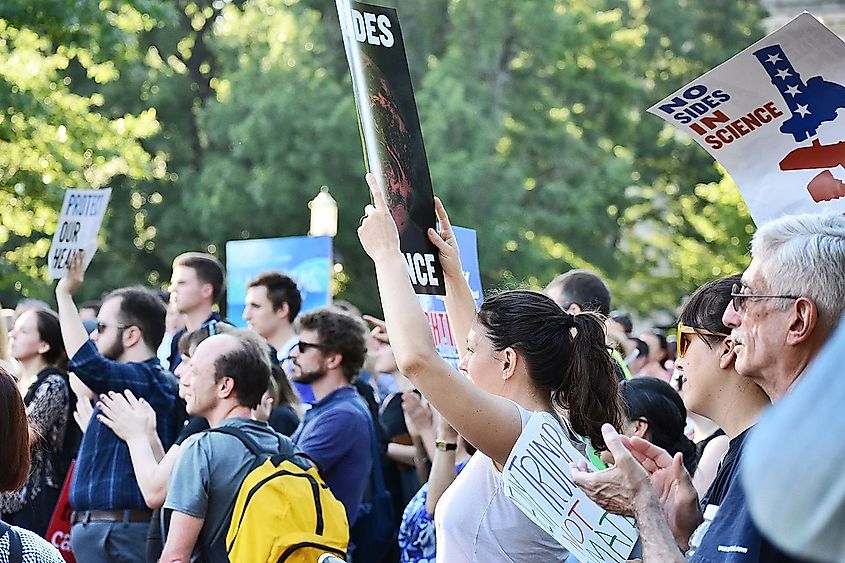Countries That Are Not Part Of the Paris Climate Agreement

- There are 8 countries that are not currently a part of the Paris Climate Agreement.
- Lebanon and Kyrgyzstan are the most recent countries to ratify the agreement as of February, 2020.
- Turkey is now the only G20 member to not be a member of the Paris Climate Agreement.
Climate change is a politically and emotionally charged topic, and state choices related to environmental protection often garner international attention. The Paris Climate Convention of 2015 and the following multilateral agreement included 197 countries, with the intention of reducing greenhouse gas emission and global warming. Since 2015, 189 of the 197 signatory countries have ratified the treaty. Lebanon and Kyrgyzstan are the most recent countries to officially join, having only ratified the treaty in February of 2020.
Signatures v. Ratification

Heads of delegations at the 2015 United Nations Climate Change Conference in Paris.
International treaties are essentially signals of goodwill - states acknowledging their agreement on a certain matter. Signing a treaty is only the first step. Treaties are normally the result of a summit between two or more states, and are signed by the heads of state or their proxies, during the convention. Following the signing of a treaty, it must go through the steps at the state level to be passed into law. A state is not considered to be bound by the conditions of a treaty until it is ratified. Thus, there are many cases where a state participates in negotiations, attends a summit and publicly agrees to the stated outcome, signs a treaty, and then does not ratify the treaty. International law does not function the same as national laws in that there is no system of enforcement if a state chooses not to ratify or follow the agreed upon measures in a treaty. International organizations, like the United Nations (UN), seek to set up an agreed upon system of enforcement, but by virtue of the autonomy of the state system, each state only agrees to participate and can choose not to at any time.
Why Not Ratify The Paris Climate Change Agreement?

In some cases, like climate change, these agreements have physical requirements (i.e. reduce carbon footprints). The Paris Climate Convention (PCC) agreement includes baselines, milestones, and verification to ensure each country is obeying the letter, not just the spirit, of the accord. Incentive to participate in an initiative that is costly, time consuming, and non-obligatory, varies dramatically based on the societal and economic conditions in each state. Wealthier and more developed countries tend to lead and participate in climate change initiatives from a moral perspective, whereas less developed nations are often unwilling or unable to allocate resources to non-immediately essential efforts.
This spectrum is exemplified on the list of signatory countries that have yet to ratify the Paris Climate Agreement since its inception in 2015. These states are all either oil-producing, or experiencing physical conflicts, and are choosing to direct their resources elsewhere. The fossil fuel industry is notorious for its carbon emissions. Many of the PCC requirements would mean that smaller countries who are primarily economically dependent on oil exports would have to commit large amounts of money to altering their fossil fuel infrastructure.
Non-Ratified Countries:
- Iraq
- Iran
- Turkey
- Libya
- Angola
- Sudan
- Yemen
- Eritrea
The Opposite Case Of The United States

US President Donald Trump has set in motion the process for the US to exit the Paris Climate change Agreement as of November 3, 2020. This will make the US the only country to pull out of the agreement. President Trump has expressed doubts in the veracity of climate change evidence and repercussions. He has also voiced his opinion that the conditions of the agreement are unduly harsh on the US to the benefit of other industrialized countries, specifically China. Criticism of this move has been harsh from both Trumps’ own party, the Republican Party, as well as the opposing Democrats. Although Trump wishes to exit the treaty to avoid certain clauses, he has declared the intention to remain at the table for climate change talks on the global level. America’s stance on the Paris Climate Change Agreement is likely to shift if Trump is not successful in his re-election bid, and the Democrats have publicly announced that they will recommit to the treaty immediately if their candidate is elected to the Oval Office.
COVID-19 And Climate Change
Global conditions are still unfolding and the implications to the Paris Climate Change agreement following recovery from COVID-19 is uncertain. The economic impact to the world economy will certainly factor into the ability and conviction that states retain around climate change. The conversation has already begun, with some countries, like Germany, seeking to leverage COVID recovery steps as an opportunity for job creation with respect to carbon emission reduction. Many factors remain to be seen, including the stance of oil-producing states like Iraq, Iran, Angola, and Libya, who together comprise half of the list of the eight states yet to ratify the treaty. As the world continues to re-open and view global affairs through a post-COVID paradigm, priorities will be re-established and efforts to adhere to the Paris Climate Change Agreement will proceed.











